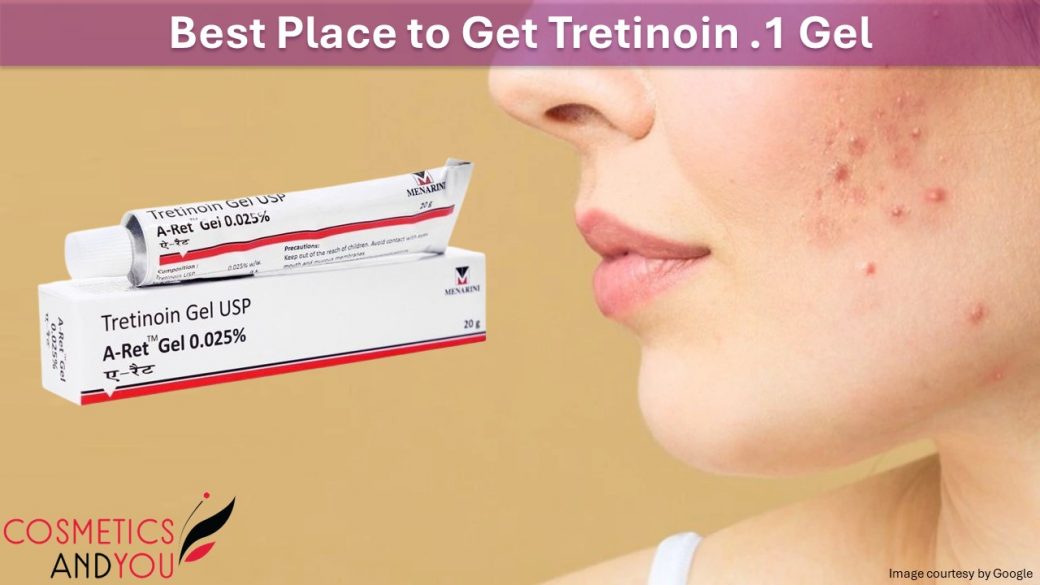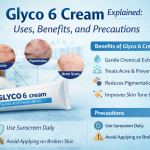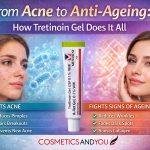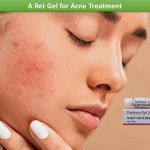Tretinoin gel can treat acne effectively. However, it has side effects. The benefits of this topical formulation include reducing the frequency and severity of acne breakouts and clearing up existing acne.
You may have heard of tretinoin as a treatment for acne vulgaris, hyperpigmentation, fine lines, or other skin concerns. Tretinoin is a topical formulation that often comes in gels and creams and can treat mild to moderate acne, facial wrinkles, and hyperpigmentation, among other skin problems. While this medicine may offer various skin benefits, it also comes with potential adverse effects that are important to be aware of. Read on to learn about Tretinoin, the benefits of using this medicine, and more.
What is Tretinoin?
Tretinoin is a retinoid typically used to treat mild, moderate, and severe acne. Retinoids are a group of compounds derived from vitamin A that support cellular production. Using a retinoid formulation may help alleviate a variety of skin conditions, including acne, hyperpigmentation, psoriasis, and others. Topical tretinoin gel .1 is US Food and Drug Administration (FDA) approved for treating acne, fine lines, wrinkles, skin roughness, and hyperpigmentation (a skin condition when a person develops patches of the skin that appear darker in colour than the surrounding skin. Typically prescribed as a topical medication, tretinoin gel helps increase skin cell turnover, allowing for gentle exfoliation of the skin. This exfoliation helps unclog pores, making acne lesions less likely to form.
What does Tretinoin gel .1 do?
When applied topically to the skin, topical tretinoin gel helps to increase cell turnover. With increased skin cell turnover, the outer layers of skin cells shed and replicate more rapidly, potentially leaving a user’s skin looking smoother and more evenly pigmented. A rise in skin cell turnover helps prevent pores from becoming clogged while effectively reducing and preventing acne scars. Moreover, tretinoin gel helps to boost collagen production. Collagen is a protein that supports the strength and elasticity of the skin. Increasing collagen production may help improve skin tone and reduce the appearance of fine lines and wrinkles.
What are the benefits?
There is a wide range of benefits associated with the use of topical Tretinoin. These benefits include:
- Improves the appearance of acne-prone skin.
- Reduces fine lines and wrinkles
- Faded pigmentation (appearance of dark spots) from sun damage
- Slows down skin ageing
- Increases skin cell turnover, which helps shed dead skin cells faster and reveals brighter, healthier-looking skin.
- Improves signs of ageing caused by external environmental factors or inflammation.
- Prevention of collagen breakdown in the skin
Side effects of Tretinoin
Although topical Tretinoin may offer several advantages, it also comes with potential side effects that can be troublesome for some individuals. The topical medication increases photosensitivity, making an individual more susceptible to sunburns. Those who use Tretinoin may want to consider increasing sun protection by wearing sunscreen, shades, and sun-protective clothing when outside.
Other side effects of Tretinoin may include flakiness, dryness, itchiness, and redness. According to the FDA, individuals who experience excessive redness, swelling, skin crusting, or blistering should continue using it until their skin has healed. Individuals with eczema may experience severe irritation and are advised to use Tretinoin with caution.
How to use Tretinoin gel?
Topical tretinoin gel should be applied once nightly, preferably before bedtime. It should be used only at night, as this is when the skin undergoes its recovery process. Tretinoin helps stimulate collagen, which assists in collagen stimulation and repair, most of which occurs while we sleep.
Dermatologists recommend adhering to the following routine when using the Tretinoin formulation:
- Rinse your face with a gentle cleanser that balances your pH.
- Apply moisturiser and wait for about twenty minutes.
- Apply a pea-sized amount of Tretinoin to the entire face.
When identifying how often to use Tretinoin, it is recommended that individuals assess their skin’s response to the medicine. Some people with certain skin types can tolerate twice-weekly application, while others can handle daily application.
Dermatologists advise against applying Tretinoin 0.1% with products that contain alpha-hydroxy acids and beta-hydroxy acids, as this can give the skin a double dose of exfoliation, which can be extremely irritating. However, these skincare ingredients are safe when applied at different times of the day.
Additionally, because Tretinoin may increase the skin’s sensitivity to the sun, dermatologists recommend using a broad-spectrum sunscreen with an SPF of 30 or higher to ensure the skin is protected and allow for the use of Tretinoin year-round.
Where to get Tretinoin gel?
Tretinoin gel is best purchased if you develop mild to moderate acne, cystic acne, or other skin issues. Consult your dermatologist to determine if topical Tretinoin may benefit you.





